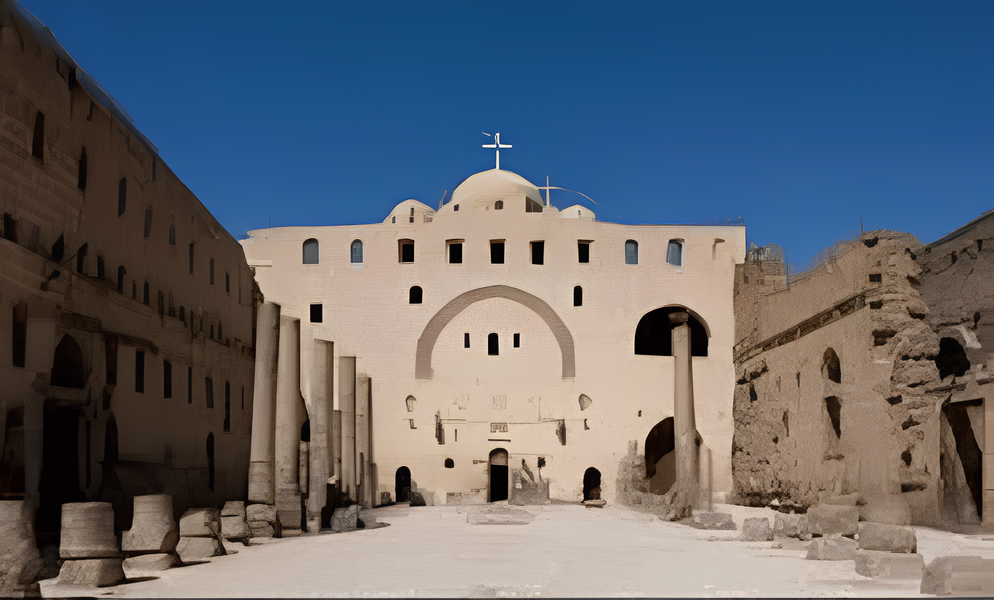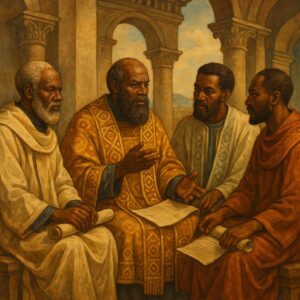Article By Kyama Mugambi, PhD
The Council of Nicaea in 325 AD is one of the earliest significant gatherings that highlights Africa’s foundational contributions to the early church. Three of these contributions stand out.
First, through African leaders such as Athanasius, Alexander and others, the council illustrates Africa’s participation in shaping Christian doctrine through collaborative community engagement. These early leaders engaged in deep reflection and debate, inspired by their strong commitment to Scripture and the traditions of the early church. Second, the meeting at Nicaea highlights the role of intellectual rigor in addressing matters of the church. This scholarly depth was rooted in spiritual maturity, evident not only in individuals but also in the life of the church as a whole. Third, the council contributes to our understanding of mentorship as essential for developing leaders within the broader body of Christ.
Community Participation
Nicaea was the first major church council held after the Edict of Milan in 313 AD. This is significant because the Edict ended the official persecution of Christians in the Roman Empire. While persecution did not cease immediately across the empire, the Edict paved the way for Christianity to become one of several accepted religions. As a result, the Council of Nicaea took place with the permission—and even the sponsorship—of the state.
 Catechetical School of Alexandria
Catechetical School of Alexandria
The council occurred at a time when Africa, particularly Alexandria, was one of the five most important centers of Christian growth. However, it was not the first time Christian leaders had gathered. Historical records show that church leaders had convened in other important meetings as early as 155 AD, including councils in Carthage, Africa (notably in 251 AD and 311 AD). Like these earlier gatherings, Nicaea demonstrates a strong sense of community among leaders, especially in the face of theological disagreement.
Scholarly Engagement
Accounts of the council reveal an environment where Christian leaders committed themselves to the highest level of scholarly engagement. The issues presented were subjected to deep reflection and rigorous debate. Early Christian centers of faith were also centers of learning. Carthage and Alexandria—both in North Africa—produced distinguished scholars whose work helped shape Christian doctrine during these formative years.
Alexandria was home to the renowned Alexandrian Catechetical School, an institution with a long history of training theologians. Notable teachers included Pantaenus, Clement, Origen, Dionysius, and Eusebius. These scholars were deeply committed to upholding the teachings of Scripture.
This intellectual rigor was the product of a church life in which leaders, congregants, and the broader Christian community were deeply committed to their faith—often to the point of death. Many of the leaders who attended Nicaea bore physical scars from persecution. Others carried fresh memories of the pain, loss, and death experienced by their congregations and families.
The issues discussed at Nicaea had a direct impact on leaders who were devoted to living deeply pious lives in ways that reflected their beliefs.
 Illustration of Africans in Nicaea
Illustration of Africans in Nicaea
Mentorship
The leaders who attended Nicaea also point us to the importance of mentorship in developing leaders within the wider body of Christ. Athanasius stands out as one of the most prominent figures at the council. He vigorously defended the deity of Christ at a time when Arius was teaching otherwise.
Athanasius, who was in his late twenties at the time, credits two important mentors. The first was Alexander of Alexandria—a pastor, teacher, and bishop who had lived through the persecution of Christians. Alexander was also a teacher at the Alexandrian Catechetical School and introduced Athanasius to the long, rich tradition of Christian scholarship. He ordained Athanasius as a deacon and later appointed him as his secretary. Alexander brought Athanasius with him to Nicaea. By then, Alexander was 75 years old and nearing the end of his life.
In his writings, Athanasius also names Anthony of Egypt as a mentor. Anthony was a deeply pious Christian who lived in the caves of the desert. Many people sought him out to learn from his devotional commitment to Christianity, traveling into the Egyptian desert to be taught by him. Athanasius later wrote a book about Anthony, highlighting what Christians could learn from his life.
In Athanasius, we see a Christian whose life was shaped by two mentors who lived out their faith in very different ways. His involvement in Nicaea as a young man, having been mentored by these great Christians, illustrates how God works in people’s lives through the positive influence of devoted Christian mentors.
Spiritual formation and intellectual rigor go hand in hand as essential companions in the life of individuals and in the life of the church.
Nicaea and Africa Today
Just as Africa played a central role in the fourth century, it continues to hold a prominent place in global Christianity today. During Athanasius’s time, Africa was a leading center of Christian thought and home to many believers. Today, Africa is the continent with the highest number of Christians.
The Council of Nicaea reminds African Christians to come together as a community and deliberate on Christian life and doctrine—especially in a time when many differing ideas exist. This is particularly important as Christians continue to live their faith in religiously diverse societies, much like in the time of Nicaea. Spiritual formation and intellectual rigor go hand in hand as essential companions in the life of individuals and in the life of the church. As Christians reflect deeply, the council reminds us not to refrain from debating passionately—always grounded in a deep commitment to God and His Word.
Athanasius’ example reminds us of the value of a strong culture of mentorship—of raising deeply devoted leaders in the body of Christ. This tradition, rooted in the time of Jesus and His disciples and carried through the early church, should continue to serve as a model for us today as we consider the responsibility of African Christians to the global church.